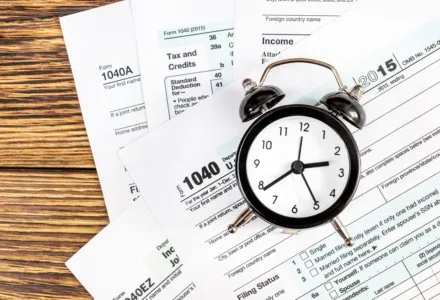Do you need to submit a Self-Assessment return for 2021-22?

There are a number of reasons why you might need to complete a Self-Assessment return. This includes if you are self-employed, a company director, have an annual income over £100,000 and / or have income from savings, investment or property.
Taxpayers that need to complete a Self-Assessment return for the first time should inform HMRC as soon as possible. The latest date that HMRC should be notified is by 5 October following the end of the tax year for which a Self-Assessment return needs to be filed. If you required to submit a Self-Assessment return for 2021-22, you should ensure that you file your tax return electronically and pay any tax due by 31 January 2023.
HMRC has an online tool www.gov.uk/check-if-you-need-tax-return/ that can help you check if you are required to submit a Self-Assessment return.
The list of taxpayers that are usually required to submit a Self-Assessment return includes:
- The self-employed (earning more than £1,000);
- Taxpayers who had £2,500 or more in untaxed income;
- Those with savings or investment income of £10,000 or more before tax;
- Taxpayers who made profits from selling things like shares, a second home or other chargeable assets and need to pay Capital Gains Tax;
- Company directors - unless it was for a non-profit organisation (such as a charity) and you did not get any pay or benefits, like a company car;
- Taxpayers whose income (or that of their partner’s) was over £50,000 and one of you claimed Child Benefit;
- Taxpayers who had income from abroad that they needed to pay tax on;
- Taxpayers who lived abroad and had a UK income;
- Income over £100,000.
No Advice
The content produced and presented by Streets is for general guidance and informational purposes only. It should not be construed as legal, tax, investment, financial or other advice. Furthermore, it should not be considered a recommendation or an offer to sell, or a solicitation of any offer to buy any securities or other form of financial asset. The information provided by Streets is of a general nature and is not specific for any individual or entity. Appropriate and tailored advice or independent research should be obtained before making any such decisions. Streets does not accept any liability for any loss or damage which is incurred from you acting or not acting as a result of obtaining Streets' visual or audible content.
Information
The content used by Streets has been obtained from or is based on sources that we believe to be accurate and reliable. Although reasonable care has been taken in gathering the necessary information, we cannot guarantee the accuracy or completeness of any information we publish and we accept no liability for any errors or omissions in material. You should always seek specific advice prior to making any investment, legal or tax decisions.
Expert insight and news straight
to your inbox
Related Articles
Claim tax relief if working from home
If you are an employee who is working from home, you may be able to claim tax relief for part of your household bills that are related to your work. If your expenses or allowances are not paid by your employer, you can claim tax relief directly from HMRC. You ...
What a tax code means
The letters in your tax code signify your entitlement (or not) to the annual tax free personal allowance. The tax codes are updated periodically and help employer’s work out how much tax to deduct from an employee’s pay packet.
The basic personal allowance for the current (and next) ...
Declare a beneficial interests in joint property
The usual tax position for couples who live together with their spouse or civil partners is that property income held in joint names is divided 50:50. This is regardless of the actual ownership structure. However, where there is unequal ownership and the couple want the income taxed on ...




Share this article